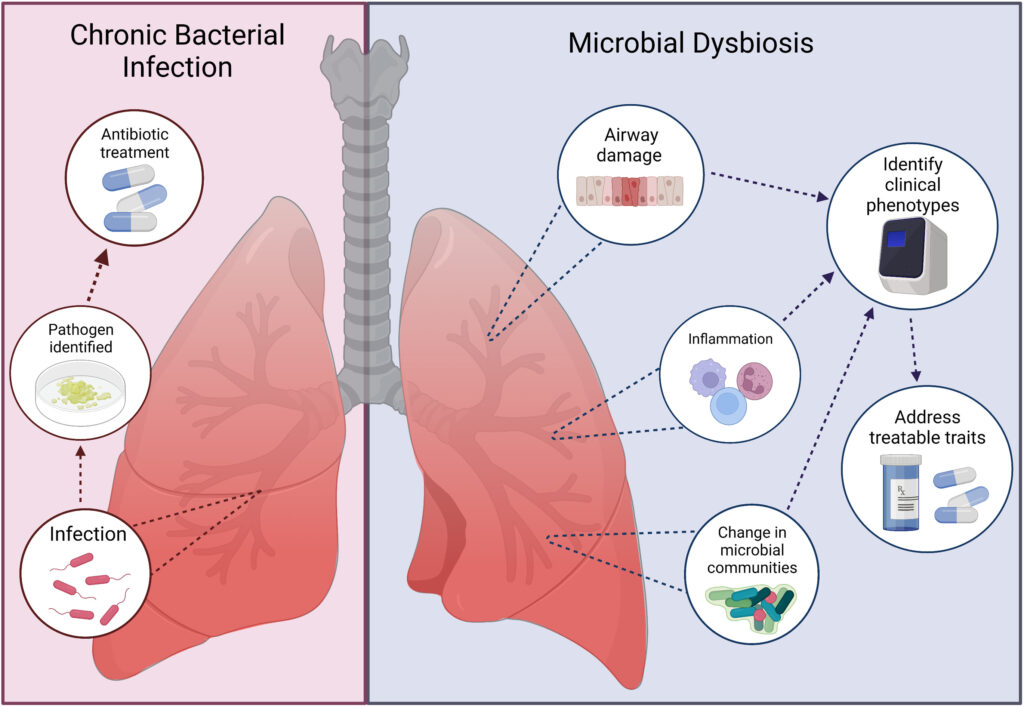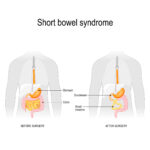Chronic bronchitis with bacterial exacerbation is a condition that can significantly impact a patient’s quality of life. This medical issue is commonly seen in individuals with underlying respiratory conditions, particularly Chronic Obstructive Pulmonary Disease (COPD). The presence of bacterial infection during an exacerbation adds complexity to the management and treatment of chronic bronchitis. In this article, we will explore the causes, symptoms, treatment strategies, and prevention techniques associated with chronic bronchitis with bacterial exacerbation.

Understanding Chronic Bronchitis and Bacterial Exacerbation
Chronic bronchitis is a long-term inflammation of the bronchial tubes, which carry air to and from the lungs. It is characterized by a persistent cough that produces mucus and often worsens during colder months or exposure to environmental irritants. Chronic bronchitis is a type of Chronic Obstructive Pulmonary Disease (COPD), a progressive condition that makes breathing difficult.
A bacterial exacerbation refers to a sudden worsening of the symptoms due to a bacterial infection. During an exacerbation, the inflammation in the lungs intensifies, leading to more severe coughing, increased mucus production, and potential difficulty in breathing. This bacterial infection can trigger further inflammation, leading to complications if left untreated.
Causes and Risk Factors of Chronic Bronchitis with Bacterial Exacerbation
Chronic bronchitis is typically caused by long-term exposure to irritants that damage the bronchial tubes, such as cigarette smoke, air pollution, or dust. However, bacterial infections can play a key role in exacerbating the condition, leading to more severe symptoms. Common bacterial pathogens include Streptococcus pneumoniae, Haemophilus influenzae, and Moraxella catarrhalis.
Several risk factors can increase the likelihood of experiencing chronic bronchitis with bacterial exacerbation, including:
- Smoking: Smoking is the primary risk factor for developing chronic bronchitis and COPD. The harmful chemicals in cigarette smoke damage the respiratory system, making it more susceptible to infections.
- Age: The elderly population is more vulnerable to respiratory infections and complications related to chronic bronchitis.
- Environmental Exposure: Occupational exposure to dust, chemicals, or fumes can irritate the lungs and contribute to chronic bronchitis.
- Weakened Immune System: Individuals with compromised immune systems, due to conditions such as HIV/AIDS or cancer treatment, are more susceptible to infections that may exacerbate chronic bronchitis.
- Previous Respiratory Infections: A history of frequent respiratory infections can predispose individuals to develop chronic bronchitis with bacterial exacerbations.
Symptoms
The symptoms of chronic bronchitis with bacterial exacerbation can vary in severity. Typically, exacerbations are marked by a sudden increase in the intensity of the following symptoms:
- Coughing: A persistent cough that produces mucus is a hallmark symptom of chronic bronchitis. During an exacerbation, the cough may worsen, becoming more frequent and productive.
- Increased Mucus Production: The mucus becomes thicker and may change color (e.g., yellow or green), indicating a bacterial infection.
- Shortness of Breath: As inflammation worsens and airways become more obstructed, patients may experience difficulty breathing.
- Wheezing: The narrowing of the airways can result in a wheezing sound when exhaling.
- Chest Tightness: A feeling of constriction or tightness in the chest is common during exacerbations.
- Fatigue and Malaise: The body’s response to infection often leads to feelings of fatigue and general unwellness.
If these symptoms worsen or persist for an extended period, it is essential to seek medical attention, as complications such as respiratory failure may occur.
Diagnosis of Chronic Bronchitis with Bacterial Exacerbation
Diagnosing chronic bronchitis with bacterial exacerbation typically involves a combination of physical exams, medical history, and diagnostic tests. Physicians may perform the following:
- Physical Examination: A thorough examination of the respiratory system, including listening for abnormal lung sounds like wheezing or crackles.
- Chest X-ray: A chest X-ray can help rule out other conditions, such as pneumonia or lung cancer, and assess the extent of lung damage.
- Sputum Culture: To identify the specific bacteria causing the exacerbation, a sputum sample may be taken and cultured.
- Blood Tests: Blood tests may be conducted to assess the severity of the infection and inflammation.
Treatment of Chronic Bronchitis with Bacterial Exacerbation
Treatment of chronic bronchitis with bacterial exacerbation typically focuses on managing symptoms, controlling infection, and preventing further damage to the lungs. The following approaches are commonly employed:
Antibiotics for Bacterial Infection
When a bacterial infection is identified, antibiotics are often prescribed to treat the infection. The choice of antibiotic will depend on the type of bacteria causing the exacerbation. Commonly prescribed antibiotics include:
- Amoxicillin
- Azithromycin
- Doxycycline
- Levofloxacin
It is essential to complete the full course of antibiotics, even if symptoms improve, to ensure the infection is fully eradicated.
Bronchodilators and Steroids
Bronchodilators, either short-acting or long-acting, are used to relax the muscles around the airways and make breathing easier. Steroids, typically in the form of oral or inhaled medications, help reduce inflammation in the airways, further improving airflow and reducing symptoms.
Oxygen Therapy
In severe cases, where oxygen levels drop below normal, patients may require supplemental oxygen to ensure proper oxygenation of the body.
Pulmonary Rehabilitation
Pulmonary rehabilitation is a program designed to improve lung function and overall fitness for individuals with chronic respiratory conditions. It includes exercise training, nutritional counseling, and breathing techniques to manage symptoms and improve quality of life.
Prevention
While chronic bronchitis with bacterial exacerbation cannot always be completely prevented, several strategies can reduce the risk of flare-ups and improve long-term lung health:
- Quit Smoking: The most effective step to prevent the progression of chronic bronchitis and reduce the risk of bacterial exacerbation is to quit smoking. Smoking cessation programs and medications can assist in this process.
- Vaccinations: Receiving vaccinations against influenza and pneumonia can help prevent respiratory infections that may lead to exacerbations.
- Avoid Exposure to Irritants: Limiting exposure to environmental pollutants, dust, and chemicals is crucial for individuals with chronic bronchitis.
- Regular Exercise: Engaging in regular physical activity can help maintain lung function and overall health.
- Good Hygiene: Regular hand washing, avoiding close contact with sick individuals, and practicing respiratory hygiene can help prevent the spread of infections.
MYHEALTHMAG

